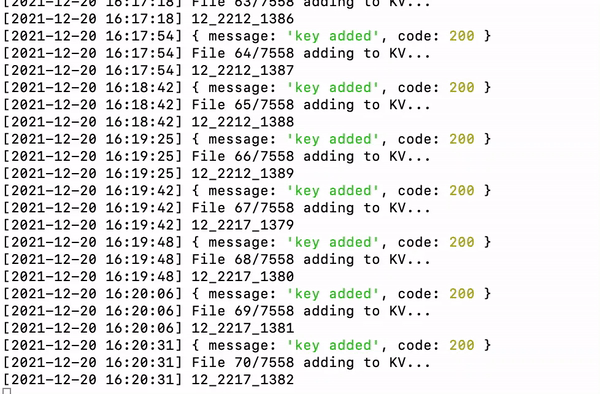Galileo is a stack of technologies designed for uploading and displaying map data using decentralized storage. It aims to offer a secure, efficient, and flexible way to handle geographical information.
Map tiles of specific countries are uploaded to Swarm using FairOS-dfs or FDP Storage.
The uploaded map tiles are indexed in such a way that they can be easily accessed and displayed either via a web interface or a user's local node.
The User Interface for displaying these maps is written using React.
- Decentralized: By using Swarm and FairOS-dfs, Galileo ensures that the data is stored in a decentralized manner.
- Public Sharing: Maps can be shared publicly, allowing for collaborative use and updating.
- Selective Display: Despite the global scale of the map data, users can choose to display only specific countries or cities.
- Trusted Providers: Users can combine sets of tiles from trusted providers to create comprehensive maps that cover the entire world.
The reason for using map data from trusted providers is to display geographical information in a manner that is mutually acceptable for both the user and the sharing party.
Prerequisites:
- access to a fairos-dfs server endpoint
- account on https://developers.nextzen.org/
- python3
- nodejs
You can run your own fairos-dfs endpoint, but setting this up is outside of the scope of this readme. Alternativaly, join the Fair Data Society Discord and use the #liberate-data-directory channel to gain more information, support and apply for access to fairos-dfs server endpoints.
You can find information on how to install nodejs in https://github.com/nodesource/distributions/blob/master/README.md
The process to create and share a map:
-
Download GeoJSON files of specific region with script: https://gist.github.com/IgorShadurin/afdc91d2f21cc8154e24da02d1805813.
Find
YOUR_ACCESS_TOKENand replace with your key from https://developers.nextzen.org/keys. Start downloading process by runningpython3 osm_tiles_downloader.py 46.06902628310932 14.507817723324576.The last two parameters are coordinates of the region you want to download.
-
Copy
/scripts/example.envto/scripts/.env -
Edit the
.envfile to define parameters:FAIROS_URL- FairOS API url, for examplehttp://localhost:9090/v1/orhttps://fairos-mainnet.fairdatasociety.org/v1/for a FairOS mainnet endpoint.FAIROS_USERNAME- FairOS username. If users doesn't exist - it will be created.FAIROS_PASSWORD- FairOS password for user.FAIROS_POD- pod name. Exists or not. If you want to share the map, then use a name that should be unique.FAIROS_MAP_KV- key-value name of the stored map data.MAP_PATH- full path to folder with tile files which downloaded above.
-
Go to
scriptsfolder, runcd scripts, runnpm ioryarn. -
Run upload script
node upload-map-kv.js. Important notice: each map should be uploaded into a separate pod. This is necessary for the convenient compilation of the register of maps.Note that sometimes you need to pause a process to continue later. To continue uploading you can use the command
node upload-map-kv.js retry 78, where 78 is number of position where you want to proceed. Uploading ~ 700 megabytes might take about 7 hours. -
Wait for the script to upload all data and return Map reference (a hash). You can share you map reference with the community.
Join the Fair Data Society Discord and use the #liberate-data-directory channel to share your map reference, add it to the Liberate Data Directory and have it displayed on Galileo maps.
Switzerland: https://old.testeron.pro/osm/tiles_sw.zip
Czech Republic: https://old.testeron.pro/osm/tiles_cz.zip
Download tiles script: https://gist.github.com/IgorShadurin/afdc91d2f21cc8154e24da02d1805813
Make tiles info: https://github.com/tilezen/vector-datasource/wiki/Mapzen-Vector-Tile-Service
You might want to run your own registry of maps & server. This is a more advanced topic which is covered in:
https://github.com/fairDataSociety/galileo/blob/master/instructions/Installation.md
